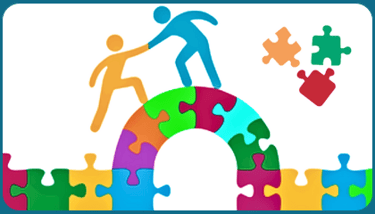The Human Epitaph: A Cacophony of Bad Choices
Every minute of every day we have choices in front of us, do we cut someone off? do we give someone food, do we ignore, do we help? Better choices are...
PERSPECTIVE
Mark Boatwright-Frost
11/17/20245 min read


The Programming of Compliance
The phenomenon of compliance within society can be traced back to numerous systematic processes that condition individuals to conform to the prevailing norms and expectations. Cultural indoctrination begins at an early age, often instilling values, beliefs, and behaviors that align with the status quo. From family to educational systems, children are subtly encouraged to adopt traits that foster compliance rather than critical thinking. This fundamental programming can lead to a paradox where conformity supersedes individuality, causing many to suppress their true selves.
Media influence serves as a potent tool in reinforcing compliance. The pervasive nature of mass communication shapes public perceptions and preferences, often normalizing particular viewpoints while marginalizing dissent. Each advertisement, news report, or entertainment program contributes to a collective narrative that discourages questioning of established norms. As a result, many individuals find themselves echoing popular sentiments rather than engaging in reflective thinking or expressing unique ideas. This media-driven paradigm often breeds a culture of passivity, where the pressure to align with mainstream beliefs overshadows any inclination toward authentic engagement.
Societal pressures further stoke the flames of compliance. The inherent desire to belong to a community drives individuals to conform to shared values, even when those values may not align with their personal beliefs. Peer influence can create a cycle of conformity, where deviation is met with resistance or ostracism. The resultant climate fosters a sense of numbness, as individuals prioritize social acceptance over genuine self-expression. This disconnect from core humanity is exacerbated by these ingrained mechanisms that prioritize compliance, resulting in a populace that often experiences life through a lens of mediocrity rather than vivid engagement. Ultimately, understanding these systematic dynamics is critical to reclaiming individual autonomy and fostering a more connected societal experience.
Bad choice: Believing that you personally are above that... Leads to arrogance, is not based in reality and a separation from our human selves. A better choice is to acknowledge the reality and work to mitigate the influence.
Uncovering the Roots of Our Impulses
The exploration of human impulses has long been clouded by a historical narrative that seeks to affirm the notion of an inherently flawed 'human nature.' This characterization often overlooks the complexity of our behavioral motivations and the extensive social influences that shape them. By examining the roots of these impulses, we can better understand how they have been interpreted and leveraged, particularly by those in positions of power. Throughout history, various leaders and institutions have manipulated public perception, suggesting that negative behavior is an unavoidable aspect of humanity. Such narratives serve to maintain control and justify oppressive systems by creating a sense of inevitability around our worst tendencies.
This simplified understanding of human impulses has unfortunately overshadowed the more altruistic aspects of our nature. While it is true that humans are capable of exhibiting greed, aggression, and fear, these traits do not encapsulate the entirety of our existence. In fact, the ability to show kindness, empathy, and reason is equally woven into the fabric of our humanity. Historical evidence illustrates this duality; social movements advocating for justice and equality have emerged from a deep-seated compassion that counters the darker impulses we often highlight. This contrast raises important questions about why our negative tendencies are celebrated in discourse on human nature while positive traits are often ignored or undervalued.
The irony lies in the fact that by relegating our negative impulses to the status of 'human nature,' we risk normalizing behavior that ought to be scrutinized and challenged. The urgency to examine these misconceptions is paramount, as they not only shape societal beliefs but also influence individual behaviors. A more nuanced understanding of our impulses, which acknowledges both our capacity for goodness and the potential for misjudgment, can pave the way for more thoughtful engagement in social and political dialogues.
The Bad Choice is to compete over cooperate... We are in this together.
The Rise of Insecurity and Greed
Historically, societal structures have fostered an environment where insecurity and greed have flourished. The evolution of these structures has not only allowed but incentivized individuals at the top to exploit the vulnerabilities and fears of the general populace. As economic disparities widen and social safety nets fray, many people find themselves confronting profound insecurities related to their financial and social status. This precariousness often leads to a desire for more—a yearning for wealth, power, and influence that can often blur ethical lines in pursuit of those goals.
In many cases, the quest for increased resources transforms into an unrelenting race, leading to decisions that prioritize individual gain over collective well-being. Those at the helm of corporations or significant political entities frequently capitalize on societal anxieties by marketing products and solutions that promise security or status. This not only perpetuates the cycle of greed but also exacerbates the insecurities of the masses. The more individuals are made to feel inadequate, the more likely they are to seek external validation through consumption or complicity in unsustainable structures.
It is crucial to recognize that the architects of these systemic issues are often driven by their own insecurities. Those who exert power in society may not be inherently villainous; rather, they are frequently operating from a place of fear. This fear can manifest as a relentless drive for wealth and influence, blinding individuals to the consequences of their actions on society at large. As such, the narrative surrounding greed must be nuanced, acknowledging that the motivations behind societal exploitation are often rooted in personal inadequacies rather than purely malicious intent.
Understanding this complex interplay between insecurity and greed is vital for addressing the systemic challenges that confront contemporary society. Only by unpacking these dynamics can we begin to envision pathways towards a more equitable and ethically sound future.
Bad Choice: We locked up the food thousands of years ago for "security" and started building the hierarchical structure we have today, all based on insecurity... The irony is it was started by insecure people.
Awakening and Taking Action
In an era marked by unprecedented distractions and divisive rhetoric, the need for self-awareness and collective action has never been more pressing. To navigate through the cacophony of bad choices that define our current landscape, individuals must first engage in a critical self-examination of their beliefs and behaviors. This awakening is the first step towards meaningful change and requires us to recognize the myriad distractions that hinder productive dialogue about the pressing issues we face as a society. From social media echo chambers to sensationalized news cycles, these distractions often prevent us from fully understanding the gravity of our collective situation.
Meaningful communication is essential in fostering empathy and understanding in our communities. It is vital that we come together, share our stories, and engage in civil discussions that transcend superficial interactions. By committing to open dialogues, we can explore diverse viewpoints, thereby enriching our perspectives and encouraging thoughtful approaches to problem-solving. As we converse, we must prioritize active listening and genuine curiosity over defensiveness or dismissal. This is how we reclaim our humanity and foster a culture of compassion, where our responses are driven by empathy rather than fear or anger.
In addition to fostering communication, taking action demands that we propose specific, actionable steps at both individual and collective levels. Community discussions should be organized where ideas can be freely exchanged, and collaborative solutions can be sought. Whether it involves environmental initiatives, social justice campaigns, or mental health awareness programs, the focus should be on unity and collective responsibility. By promoting engagement in these activities, we can inspire a movement toward a more conscious existence, one where individuals are committed to the well-being of not only themselves but also the communities they inhabit. Through this concerted effort, we can begin to turn the tide against the currents that threaten to erode our shared humanity.
Bad Choice: remaining in the bubble of fear, continuing to focus on us and them, believing that your vote for a party candidate will fix this for you...
Better choice, lets talk, have coffee, break bread!
Thoughts on a human future... ~Mark Boatwright-Frost
The Resilient Community Movement
In today's ever-changing world, the importance of fostering resilience within neighborhoods and communities cannot be overstated. By facilitating connections among residents, we empower individuals to share their stories and experiences, creating a strong support network. This collaborative spirit not only enhances the well-being of community members but also amplifies their voices, ensuring that their unique human needs are recognized and addressed.
Contact and Connect
info@reseco.org
© 2024. All rights reserved.
